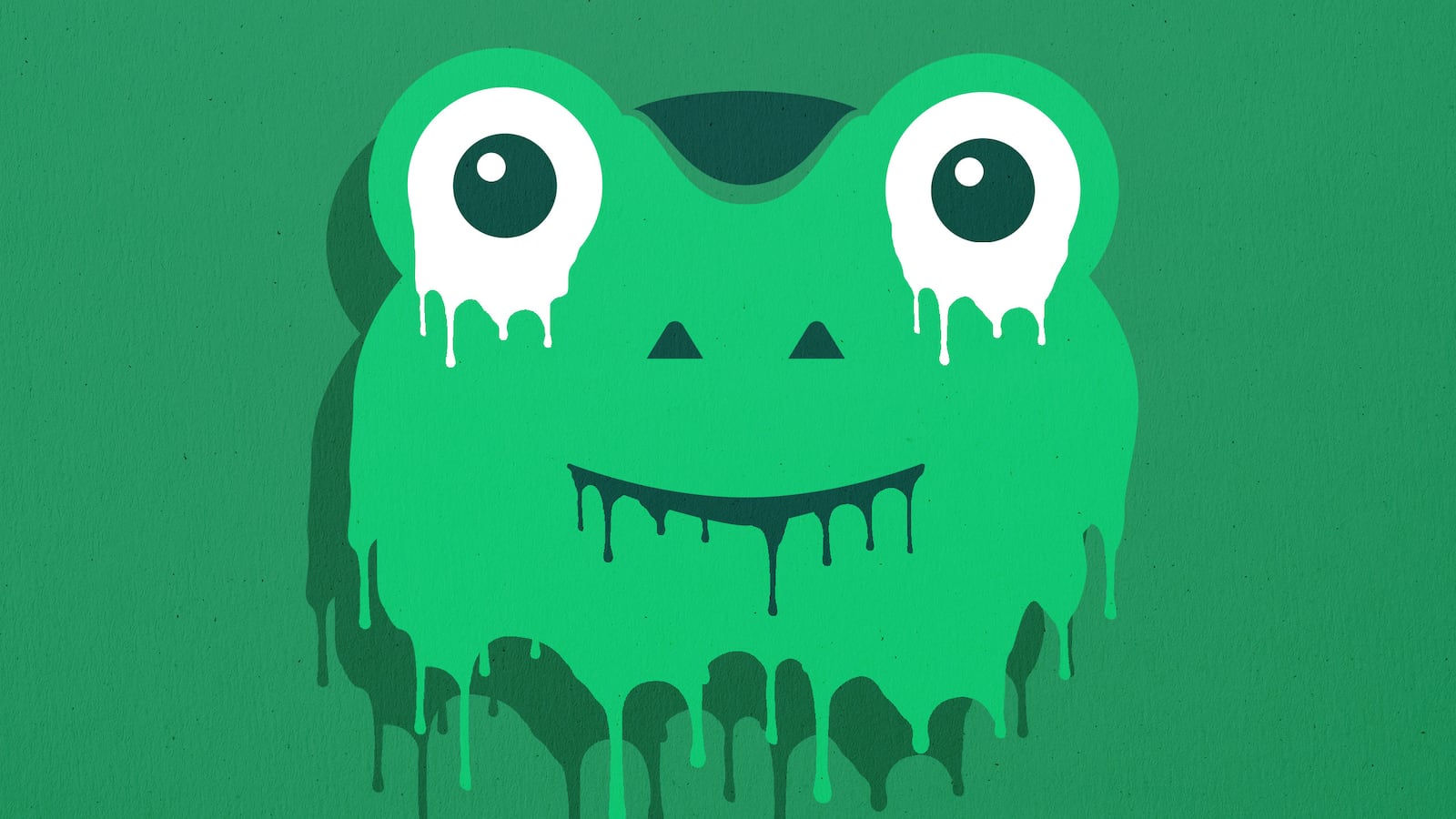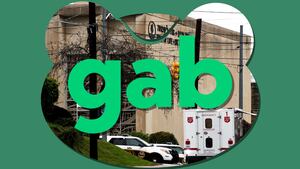Months after a Gab user allegedly massacred Jewish worshippers at a synagogue, the extremist-friendly social-media site is in the middle of a full-scale meltdown, freezing its signups on Wednesday.
Gab advertises itself as a “free speech” alternative to Twitter or Facebook, but it’s more like a haven for violent extremists, including Robert Bowers, the white supremacist who posted anti-Semitic conspiracy theories to Gab before allegedly murdering 11 Jews in a Pittsburgh synagogue in October. Another pair of Gab users were accused the next month of plotting an attack of their own. The site suffered a financial blow after the incidents, with payment processors and web-hosting companies cutting ties with them.
Now the site is struggling to stay online and canceling services, amid reports that its founder Andrew Torba might be in trouble with the U.S. Securities and Exchange Commission. Torba has blamed everyone from the deep state to leftists—everyone except himself.
Gab has always been a bad website. Nothing loads, the search function is a joke, and its member rolls are riddled with porn bots. And that’s even without the neo-Nazis posting racist memes and goading each other to murder.
But Gab hit real trouble in late 2018, after Bowers apparently announced his plans for mass-murder on the site. Payment processors and web hosting companies stopped working with Gab. (Some of the companies had previously ignored warnings that Gab violated their terms of service, The Daily Beast reported.)
Gab needs payment processors if it’s ever to make a profit. So far, the company has lost more than $350,000 since its August 2016 launch, but is attempting to make up some of the difference by selling “Gab Pro” subscriptions. When the payment processors left, Gab experienced “a 90% decline in payments for our subscription services,” according to December 19 SEC filings.
The rest of Gab’s money comes from crowdfunding, with the possibility of floating on the stock market. But Gab might be misleading its investors, according to a Southern Poverty Law Center report last week. The report noted that Gab’s crowdfunding page heavily promoted a feature that has been out of operation since summer 2018.
The SPLC report also takes issue with the number of users Gab advertises in statements to potential investors. The company claimed in late December to have more than 850,000 users. That figure is dubious in itself; more established social networks usually publicize the number of active users on their sites. (The number of registered accounts could reflect spam accounts, duplicate accounts, or accounts that are no longer in use.)
Heidi Beirich, director of the SPLC’s Intelligence Project said the number of active Gab users might actually be significantly lower.
“We reached out for an analysis of the number of active users of Gab—accounts who actually logged in and posted content to the site over a span of a week in January—,and received a number that was below 20,000 unique users,” Beirich told The Daily Beast. “That would be a massive difference in community size from what the company is advertising to the public and government regulators.”
The report also noted that Gab’s reported number of users rose dramatically, at a rate that would have meant approximately 2,500 new users joining a day in December.
SEC regulators might have their own misgivings about Gab. The website applied to raise $20 million in stock offerings through the SEC’s Regulation A program, but those applications have been pending for a year.
“Financial analysts with which we consulted on our research suggest that is pretty unusual,” Beirich said of the delay. “Companies like Gab also tend to attach communications they’ve had with SEC regulators to filings like their December 19 SEC document, and this company just didn’t do that for some reason.”
Shortly after the SPLC report, Gab privatized its Twitter account, which it previously used for advertising, lashing out at detractors, and making coded anti-Semitic comments. (It unlocked its Twitter on Wednesday night.)
But the outages didn’t stop at Twitter. This week, Gab has been intermittently offline, in what Gab complained was an attack of “50,000 bots in under 24 hours.” The social network suggested, without evidence, that the outages “could be a state actor, or a very skilled team who was hired to do this. Did activist bloggers learn to code or something?” Torba shared a post by a user who asked whether the “deep state” was attacking the site.
An influx of bot accounts, incidentally, is why most social networks describe their membership in terms of active members. Gab’s investor outreach hinges on its alleged ability to earn more than 850,000 members in a short time—a less impressive figure if members can join in 50,000-account clusters. If Gab is facing allegations of inflating its member count, an “attack” of 50,000 fraudulent accounts could further obfuscate the site’s numbers.
After a day of outages, Gab locked down its membership registration on Wednesday. The site now works on an invite-only basis.
Gab also appears to be abandoning its original goal of offering mobile apps. The company initially tried to release a Gab app through Apple’s App Store and Google Play. Apple rejected the app outright, citing pornography and hate speech. Google hosted the app until August 2017, shortly after the deadly white supremacist rally in Charlottesville, Virginia. “Social networking apps need to demonstrate a sufficient level of moderation, including for content that encourages violence and advocates hate against groups of people," Google said of its decision to kick Gab from the platform.
Since then, Gab has independently promoted the app for Android phones. As recently as November 26, Gab promoted its app on Twitter. But the company has since given up. On Wednesday, Torba responded to a Gab user who demanded Gab “fix your Android app!!!”
“We are no longer supporting the Android app,” Torba wrote, “please use the mobile browser.”Users piled on in the comments. “Seriously?!” the original writer complained. “Are you foolish, naive, or do you actually enjoy shooting yourself in the foot?!”
Gab has previously blamed shadowy bot campaigns for its failures. The site has always struggled with violent rhetoric, but Gab executives were forced to address the issue in June, after one of Gab’s then-executives received a death threat from a user and reported it to police. Although the threat came from an alt-right microcelebrity with a significant following on the site, Torba claimed the violence was actually coming from leftists trying to damage Gab’s reputation.
“We have seen instances where there are people who claim to be Nazis, but are in fact on the payroll of various SJW [social justice warrior] groups,” Torba claimed without evidence in a public post at the time. “We know that for a fact because we have a lot of you could say hacktivists or engineers or political activists that are actively on the darkweb and report to us on activities going on against our community and our site.” Torba went on to baselessly blame the liberal media site Shareblue of being behind the attacks. Shareblue’s chief operations officer told The Daily Beast he’d never heard of Gab.








